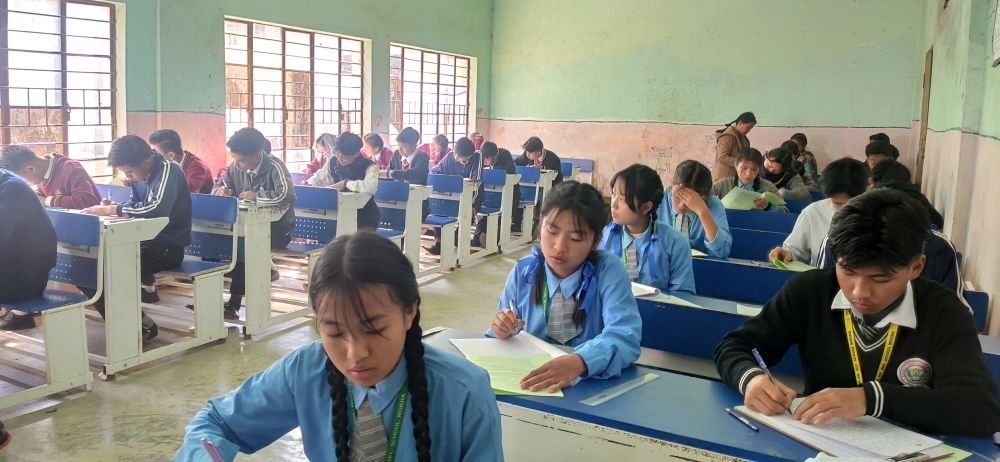
Morung Express News
Kohima | November 20
In a historic and rare ruling for Nagaland, the Gauhati High Court (GHC), Kohima Bench has directed the Nagaland State Government to pay a sum of Rs 25 lakh as “exemplary compensation” and other payments for violation of constitutional and maternal health rights of a woman who passed away during child birth.
“Considering the economic condition of the family of the deceased, the facts and circumstances of the case, it is considered just and proper to direct the respondents to pay a sum of Rs. 25 lakh as exemplary compensation and also to pay a sum of Rs. 15,000/- to meet the legal expenses,” read the judgment delivered by the Kohima Bench of the GHC on November 15. The state government was further ordered to comply with the directive within a period of 3 months from the date of receipt of the order.
The writ petition was filed after a “fact finding survey” conducted by the Human Rights Law Network (HRLN), Nagaland Unit in 2016 on the death of one woman— Bemang (30 years) who died during childbirth on November 7, 2016 and whose death was attributed to a “non functional sub-centre” in Monyakshu village, Mon.
“The event of the death was attributed to the poor implementation of the government maternal health scheme under NRHM in the Sub-Centre of Monyakshu under Mon District, catering to a population of about 6500,” as per a report available in the HLRN website.
The petitioner Moba Changkai, who is the eldest son of the deceased, prayed for compensation against the state authorities “who failed in securing the fundamental right to life of good health, equality and dignity enshrined under Article 21, 14 and 15 of the Constitution of India; further seeks for the proper implementation of the maternal health schemes, the Indian Public Health Standard guidelines, conducting of child death review, maternal death review, timely supply of drugs and others.”
The sub-centre in the village of the deceased, which is Type-B sub-centre is supposed to have all the basic facilities for conducting deliveries, it said.
However, since the sub-centre was “defunct and closed,” the family of the deceased was left with no choice but to take her to the district hospital, about 130 Kms away from their village Monyakshu. The mother succumbed to obstructed labour case on the way, HLRN report noted.
According to HLRN, a close study of the report found that the dilapidating structure and the dysfunctional center was one of the reasons for the cause of death. The HLRN’s ‘fact finding survey’ further discovered that in Monyakshu “there was a high prevalent case of child deaths.”
The judgment noted that during the hearing, the counsel for the respondents contended that the petition be dismissed on grounds that the petitioner did not make the effort to approach the state health authorities for help in the first place. The respondent’s counsel further argued that the “village health management committee (VHMC)” was not made party to the case.
The court however ruled that the objections raised do not hold ground “under the facts and circumstances of the case.”
It stated, “Non submission of a representation or a demand prior to filing of a writ petition is not an absolute prerequisite for approaching a writ court under public law. Secondly, all the responsible persons who are stakeholders have been impleaded in the writ petition,” it said, while adding that not making the VHMC, ANM and ASHA party to the case “does not make the writ petition improper or defective.”
The petitioner through his counsel also submitted that the “ASHA of the village attached to the Sub-Centre never identified the petitioner’s mother to enable her to avail the benefits of the maternal health scheme.”
Besides being a Type-B sub-centre, under Janani Suraksha Yojana (JSY), a flagship scheme for safe motherhood intervention under the National Health Rural Mission, a minimum of one ASHA is to be made available to such sub-centres for effective implementation of the scheme.
The Court observed that “such Sub-centres are expected to be more proactive so that awareness is well spread and women are encouraged to come forward for regular check-up during pregnancy and also to come forward for institutional deliveries.”
Those in-charge of the health of the “community are under obligation and are duty-bound to ensure that the basic facilities which are intended to be made available for the poor,” it added.
In addition “exemplary compensation” and legal expenses, the court further directed that the state government pay Rs 20,000 to the petitioner and his family under National Family Benefit Scheme.
Further, the Court said that as the deceased was entitled to free transportation charge for going to hospital, "the respondents should also reimburse the amount spent."


.jpg)
.jpg)
.jpg)
